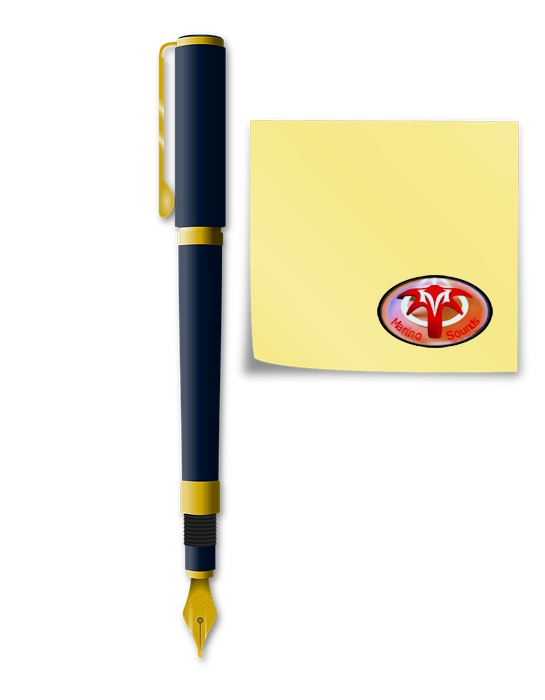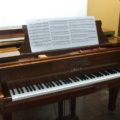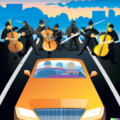In the past, writing with pencil and paper was the only available method for composers, and it was considered the norm. However, even in today’s modern technological era, some composers, especially those born before 1940, still prefer and choose to write using this traditional approach, despite the advancements in contemporary technology. Why would someone forego the tools of the 21st century in favor of the rudimentary pencil and paper method?
Often, a piece of music is imagined internally within a composer’s mind. Sitting down at an instrument like a guitar or piano can actually be a distraction from what they are hearing internally. The main advantage of composing with pencil and paper is the ability to focus on the musical vision without being sidetracked. It allows one to remain in a meditative state and concentrate on listening intently, capturing what they hear. Pencil and paper-based composition doesn’t impose any predefined sound suggestions, allowing the composer to create the music as it naturally comes to them, without being influenced by the sound produced by an instrument. Sometimes, playing a melody on a piano or keyboard can divert the composer’s attention, causing them to lose sight of the overall piece.
On the other hand, combining the use of pencil and paper with an instrument of choice, such as a guitar or piano, can be a highly effective approach. Pencil and paper can be taken anywhere, although with the advent of small computers, this has become somewhat less significant. Many composers prefer to have manuscript paper and a pencil while sitting at a piano, having been trained in music theory and composition classes during their education.
However, the biggest challenge for many composers in quickly writing with pencil and paper is the ability to hear the music in their head and promptly and fluidly translate those sounds into notes on paper. This used to be a necessary skill for composers in music education, but it is often neglected in modern times. Many individuals struggle to notate what they hear in their mind and may take a long time to notate it accurately on paper. This is especially true for those growing up in the 21st century, where immediate auditory feedback is available as one enters each note into a computer.
Modern technology has taken the pencil and paper process and brought it onto the screen. Contemporary music notation software has matured and is unbeatable in terms of the final product it produces—the scored music. Scoring software also offers the advantage of being able to hear the music as it is being worked on, which is a valuable tool for many composers. The feedback provided by modern software is truly fantastic.
Is composing with pencil and paper suitable for every musician? Perhaps not, and it seems to be a dying skill in the computer age. Many individuals have grown up with this skill and feel most comfortable using it. The ability to hear music and seamlessly translate it into written notation is a unique skill that many contemporary composers may not possess. If composing with pencil and paper feels right for you, then by all means, pursue it. You should train yourself in the art of fluidly translating musical sounds into pencil strokes. If it feels too challenging, you can explore alternative paths and follow your instincts to discover what works best for you as you develop your own unique methodology.
Manuel Marino is a seasoned Senior Producer, Music Composer, and Artist with over a decade of experience. He specializes in branded entertainment across various mediums, including video games, films, and advertising campaigns. With 20+ years as a game music composer, Manuel has worked on numerous platforms, creating diverse orchestral soundtracks. HIRE ME


 Manuel is a passionate, driven, and techsavvy AV technician,
Manuel is a passionate, driven, and techsavvy AV technician, 










